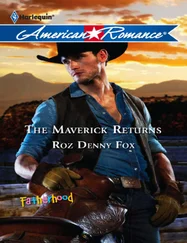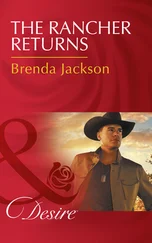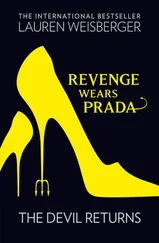“Can you give me a hand?” he said. “Getting out?”
“Your dad’s waiting in the car,” she said. “Should I go get him?”
“No.” Naturally, his father couldn’t be bothered to come in and greet him. “I really just need a hand. We can do it.”
They did. The girls came forward, perfectly in step. They’d rehearsed this. They presented him with his crutches as if they were peasants bestowing a humble gift to the king.
Then they cracked up, and for a long time he didn’t do anything much but hold the girls’ embrace. At some point Bev whispered, “You did promise,” and he whispered, “So far, so good.”
“It’s nice to have you back,” Charlotte said.
Outside, the funeral home’s pebbled parking lot would have been big enough for a shopping center. Maybe fifty cars, but his father, Fausto, of course, had the best space, closest to the door. He’d probably come by yesterday, sized up the parking situation, then gotten here hours ago to make sure he got that space. He sat behind the wheel of his idling Oldsmobile, looking straight ahead and listening to Mexican music on the radio. He had the air-conditioner going full blast, probably for no other reason than to create a need for him to wear the old quilted jacket with his union local’s logo on the back. He waited for Nick to finish struggling with the crutches and get situated in the passenger seat even to turn to face him.
“Well, well, well,” said Fausto Geraci, “if it ain’t Eddie Rickenbacker.”
A team of local carpenters had been hired to make long maple tables especially for the peace talks. The tables were arranged in a big rectangle inside a ballroom that had once been the stable. The stain on the tables was dry but so fresh it still smelled. The odor wasn’t too bad until the room also filled with cigar and cigarette smoke. They opened all the windows, but the consigliere from Philly, who had emphysema, and Don Forlenza from Cleveland, who had just about every affliction under the sun, both had to listen from the next room. The temperature outside was forty. Other than Louie Russo, who must have been trying to prove something, the men conducted the entire meeting in their scarves and overcoats.
What everyone at the table agreed to believe for the sake of peace was this: The plane crash in Lake Erie was nobody’s fault. Frank Falcone did in fact bet a hundred grand on that fight at the Cleveland Armory, and he’d insisted on going to see it no matter how bad the storm was. As the plane went down, someone in the tower heard Geraci say the word sabotage, but Geraci was merely thinking aloud in a time of great stress and ruling out sabotage. The thunder and lightning made the radio transmissions difficult to hear. The plane crashed and everyone died on impact except Geraci, who almost did. Don Forlenza learned about the terrible deaths of his recent guests, and he learned that the authorities thought the crash might have been the result of sabotage. Immediately, Don Forlenza made certain that no one in his organization had sabotaged the plane. Then he rescued his injured godson from the hospital. What else was there to do? Had Don Falcone and Don Molinari been killed as a result of sabotage, there was the chance this might be blamed on the Cleveland organization. There was a chance it might be blamed on his godson, who was unconscious-unable to protect himself, unable to answer for himself. Who in this room would not have done the same for his own godson? Also, because Geraci was a member of the Corleone Family, Don Forlenza was concerned that his godson may have been the target of violence by one of the other New York Families. Geraci had regained consciousness. The federal authorities had ruled out sabotage. The crash had been an act of God. Don Corleone had let the other members of the Commission know that the missing pilot was Geraci. As Don Corleone had said then and reasserted now, the fake name on Geraci’s pilot’s license was intended to be a deception to no one but law enforcement officials, no different in kind than the driver’s licenses many of them were carrying now. In this case, the alias had done its job. While every man in this room had known for months that Gerald O’Malley was in fact Fausto Geraci, Jr., the authorities had presumed that O’Malley was the rat-gnawed corpse in that ravine.
What a fitting monument to the four men who died that the discussions initiated to help understand the crash soon expanded themselves to other issues. Soon an agreement for a lasting peace had been struck-an agreement they’d had all come here to ratify.
Much of the official story was true, but no one in that farmhouse believed every word of it.
Though no proof had come to light, there seemed to be little doubt that Louie Russo’s men had penetrated Vincent Forlenza’s little island fortress and sabotaged the plane. After all, the men in that plane did represent all four of Chicago ’s biggest rivals in Las Vegas and the West. The crash had succeeded in making Don Forlenza look like an old fool. The struggles in New York had given Russo an opening, and he’d seized it. He’d forged allegiances with several other Dons-Carlo Tramonti in New Orleans, Bunny Coniglio in Milwaukee, Sammy Drago in Tampa, and the new boss in L.A., Jackie Ping-Pong. When Russo went to Cuba, he stayed in the presidential palace. No one but Russo’s allies relished Chicago ’s return to power, but the consensus was that Russo posed less of a threat with a seat on the Commission than he had as a turf-grabbing outsider. To most of the men at those tables, trying to prove Russo responsible for that crash was unimportant. What mattered was returning their full attention to their own business. Even Butchie Molinari had been persuaded (by Michael Corleone, in fact) to declare publicly that he accepted the official version of the crash and to vow not to seek revenge.
Louie Russo and also his consigliere were not about to deny an accusation that no one had openly made, even if they knew it was false. Russo hadn’t ordered a hit on the men in that plane. If he had his theories about who if anyone had, he wasn’t letting on.
Russo, naturally, knew some things. Jackie Ping-Pong knew some things. Sal Narducci-who because of Forlenza’s health problems sat alone at the head table, as if he were already running Cleveland -knew some other things.
The man Narducci hired to sabotage the plane went on vacation in Las Vegas a few days later and hadn’t been seen since.
(Or, rather, he hadn’t been seen since Al Neri, a man who didn’t know or care about who he killed or why, shot him and buried him in the desert.)
Clemenza knew a lot, but not everything.
Michael Corleone was fairly certain that he’d covered his tracks well enough that no one-neither friend nor enemy, cop nor capo- would ever put it all together.
Who would possibly surmise that not only did Michael order the deaths of Barzini, of Tattaglia, of his own top caporegime Tessio, and of his own sister’s husband-not to mention all the collateral killings those killings unleashed-but that he then negotiated a cease-fire and used that uneasy truce to orchestrate a hit on the men in the airplane, including Nick Geraci, whom he’d recently promoted to capo, and Tony Molinari, a steadfast ally? There were no rumors that either man had betrayed him-largely, of course, because they had not.
Who’d ever figure out what that satchel Fontane delivered was really for? Even Hagen had unquestioningly presumed that it was an investment in the new casino at Lake Tahoe.
From where Michael Corleone sat, tapping that old Swiss watch given to him by Corporal Hank Vogelsong, how could anyone-even someone who’d only read about Jap planes exploding into fireballs, cutting troopships in half-think that a man who’d seen what Michael had seen in the Pacific would kill anyone by ordering a plane crash?
Читать дальше











